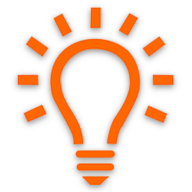A very important question to ask yourself very early in the book creation process is, "what sort of book am I writing?" Being clear about what the book is designed to achieve once it is written and published will help you focus your efforts on what needs to be said.
Typically people will begin writing one of two types of books: a legacy book or a “logic” book. A legacy book is a book about yourself: what you do and why you do it. This is a great type of book for people that already have a following or a community they are passionate about. Your established audience cares about you and is inspired by you and your journey, so naturally they will gravitate towards a book that you have written.
Here are some reasons why you would write a legacy book:
-
You have gone through a personal struggle in your life
-
You want to inspire others
-
You have a successful speaking career
-
You have a preexisting audience
Unfortunately, some people start out by writing a legacy book. The biggest problem here is that you don’t have a following, so unless you have a very powerful story that the book can leverage, writing this type of book can be hard to sell long-term. Furthermore, legacy books can be a huge time trap as it’s easy to become very emotional and draw out the project. That’s why I recommend that most people start out by writing what I call a “logic “book.
Now when I say “logic” book, I’m not referring to something that you would read in a philosophy class, but rather a book that is based around your knowledge and experience in a particular area. For example, it could be a how-to book, a compilation of interviews with people on a common theme, or a book on thought leadership.
Here are some reasons you would write a logic book:
-
You want to establish your authority in a particular area
-
It is often much easier to write (because it's typically based around your knowledge and experience)
-
It's a faster book to write
-
It has the best chance of success (because you can speak to your best prospect and show them you understand their needs and wants)
In the case of a logic book, try not to cover an entire subject. Rather, pick something that can be easily understood and implemented. You might want it to outline steps 1 and 2. For the final steps, readers must come to you. However, even in the process of outlining steps 1 and 2 in the book, you're selling readers on the idea that they might need some help and that you are the go-to person to help them.
In some cases, you may plan to write a series of books. In that instance, a legacy book could be the first book in the series to help set the scene and establish your personal story.
Confused about which type of book to write? Click below to get my #1 International Best-Selling Book on Book Publishing!
https://evolveglobalpublishing.com/publish


